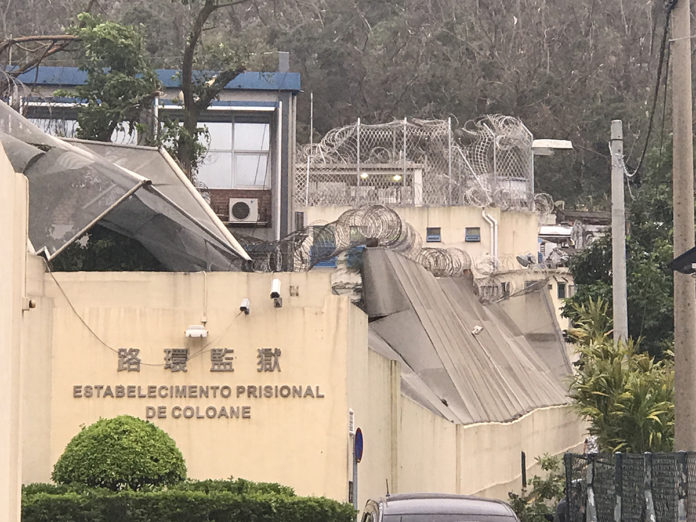The degree in Social Work at the University of Saint Joseph, the only higher education course available in Macau’s prison system, wants to support the transition to social reintegration, but, for now, it only reaches the male convict population.
Before being sentenced to 19 years and two months in prison for kidnapping, Chan Sai Lok (not his real name) was already accompanied by a social worker. So when, in seclusion, he made the decision to continue his university studies, he did everything he could to pursue Social Work.
“Social workers are a kind of angels,” he says.
Freed for two years, Chan was the one who sparked the nearly two-decade partnership between the Coloane Prison and USJ by sending a letter to the Catholic higher education institution. At the time, in 2009, he had been serving time for a decade, when he read an ad in the newspaper about USJ courses.
“I wrote to them not knowing if they would react, but luckily they answered me a week later,” he recalls.
“With little to do in jail”, Chan came to work in the prison’s library and gymnasium, but nothing brought “more hope” to the then 28-year-old than this project “for the future”.
“There are so many adversities out there, and I thought at the time that I needed to catch up and prepare for those challenges,” he recalls.
Over the ten years that separated him from definitive freedom, Chan completed a curricular year, dedicating himself to a new routine behind bars: “We had a classroom, we attended the course four or five days a week and, as I shared the cell, studied in bed”.
The Prison Outreach Program was launched in 2009, with the aim of preparing inmates “for the future, for social reintegration and for a better transition in the community”, explained the project coordinator, Helen Liu, referring that the selection of candidates “is rigorous”, requiring a letter of intent and an interview.
“These people have a unique background and, in Social Work training, there is a more humane approach, so I think they can use personal history and the past and apply them in this field”, says the academic, thus justifying the interest of the students. prisoners in this work area.
Suspended for a few years due to problems related to personnel management at the USJ, collaboration between the prison and the university was resumed in 2018, in a “more structured” format, and now, for example, the last phase of the degree requires the student to that he is at liberty.
This training in Social Work is the only higher education course available throughout the Macau prison system and is currently attended by 16 inmates, according to data sent to Lusa by theCorrectional Services Bureau (DSC).
Most, seven, are between 21 and 30 years old, five belong to the age group of 31-40 years old and four are between 41 and 50 years old. However, among the students, there are no women.
“Men and women cannot be together, but recently our director received a letter from the female wing showing interest”, maintains the coordinator Helen Liu, referring, in addition, that the course is taught in Chinese and does not have a variant. in Portuguese, one of the official languages of the territory.
Asked about the possibility of the program being extended to women, the DSC stressed that it has never received requests in this regard, but if that happens, they will be considered.
Paul Pun, secretary general of Cáritas Macau, the organization that has supported this partnership in the past, with the reinforcement of teaching staff, warns that higher education must reach the entire prison population, in addition to advocating the creation of other tertiary education projects. for inmates.
“These are people who have a lot of time in prison and can use that energy to study and plan for the future”, explains the leader of Cáritas Macau, responsible for the Temporary Reception Home, which houses, in a transitional phase, “ex-prisoners with difficulties to find a home”.
On the other hand, the academic Helen Liu says that “it is important to follow up these people” in the post-prison period.
“In prison, they have a routine, but outside, with other stimuli and environment, there can be some confusion and, if we don’t guide them properly, they can go back to the past”, she considers.
Chan Sai Lok is now 40 years old, lives with his parents and works for a non-governmental organization as an activities coordinator, while he finishes his penultimate year of his degree.
In Macau, “although today is better”, a negative image prevails in relation to those who lived in prison, laments Chan, who admits feeling “some distance” from colleagues and old friends.
For the next academic year, the student must begin the last phase of the university course, the curricular internship, thus becoming the first finalist of the USJ Prison Development Program.




















